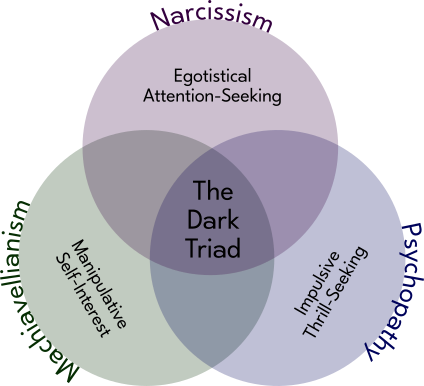

| Healthy Relationships | Unhealthy Relationships |
|---|---|
| Healthy Relationships | Unhealthy Relationships |
|---|---|
| Respect: Each person values who the other person is, understands the other person's boundaries, and values their beliefs and opinions. | Disrespect: Your partner makes fun of your opinions and interests, or purposely destroys something that is important to you. |
| Trust: Partners trust each other and are comfortable doing things separately and respecting each other's privacy online. | Jealousy: Everyone can experience jealousy, though it becomes unhealthy when someone tries to control you because of it. |
| Honesty: Being truthful and open with your partner and being able to talk together about what you both want without fearing the response or if you'll be judged. | Betrayal: When your partner is deceitful, hides important things from you, or threatens to make your private matters public in order to control you. |
| Individuality: Neither partner compromises who they are, and each has their own identity, with space and freedom in the relationship. | Control: When your partner makes all the decisions and tells you want to do, what to wear, and who to spend time with. They may also be 'in charge' of all the finances and insist that you account for all of the money that you have spent, or force you to hand over any money you have to them. They may also try to isolate you from friends and family. |
| Equality: You and your partner put equal effort into the relationship and make decisions together as opposed to one person calling all of the shots. | Manipulation: One partner influences the other without them realizing it. This can include ignoring you until they get their own way, making you feel guilty or responsible for their actions, making you feel like everything is your fault, threatening to hurt themselves or others if you don't do as they say or stay with them. They may also use gifts and 'apologies' to influence your decisions. |
| Taking Responsibility: You and your partner are both responsible for your own actions and words. You both avoid putting blame on each other and own up when you do something wrong. You both avoid taking things out on each other when you're upset and both try to make positive changes to better your relationship. | Deflecting Responsibility: Your partner makes excuses for their behavior, blaming you, other people, or past experiences for their actions. They may use alcohol or drugs as an excuse, or use any mental issues or past experiences (like a cheating ex or divorced parents) as a reason for unhealthy behavior. |
| Healthy Sexual Relationship: A sexual relationship that both are comfortable with, and neither partner feels pressured or forced to engage in sexual activity that is outside their comfort zone or without consent. | Sexual Violence: One partner pressures or forces the other into sexual activity against their will or without consent. |
| Non-Violent Relationship: No physical violence is used by either partner; feeling a sense of care and concern from your partner, knowing that they will be there to support you. | Physical Violence: When one partner intentionally uses physical force against the other, as a means of controlling the other partner. This includes shaking, slapping, pushing, biting, punching, scratching, trying to choke or strangle, hitting with household objects, using weapons, and physical restraint (e.g.: pinning you against a wall). |
| Inclusion: Both partners encourage each other to socialize and keep in touch with friends and family. | Isolation: Keeping you away from friends, family, or other people by insisting you choose your partner over them. |
| Protection and Loyalty: When your partner is reliable and you feel confident that they have your back, and are respectful and faithful, sticking up for you and keeping your secrets safe. | Sabotage: Purposely ruining your reputation, achievements or success by making you miss work, talking about you behind your back or starting rumors, and threatening to share private information about you. |
| Encouragement: Your partner supports you to do things that you want to do, and backs your decisions. | Belittling: Making you feel bad about yourself - calling you names, making rude remarks about your friends and family or what you look like, and making fun of you - even if it is played off as 'just a joke'. |
| Self-Confidence: When partners have confidence in themselves, they are calm and comfortable enough to allow others to express their opinions without forcing their own opinions on them. | Intimidation: When a partner tries to control aspects of your life by making you feel fearful or timid. This may include threatened or actual violence. |
| Healthy Relationships | Unhealthy Relationships |
|---|---|
| Comfortable Pace: The relationship moves at a speed that feels enjoyable for each person | Intensity: When someone expresses extreme feelings and over-the-top behavior that feels overwhelming |
| Trust: Confidence that your partner won't do anything to hurt you or ruin the relationship | Possessiveness: When someone is jealous to a point where they try to control who you spend time with and what you do |
| Honesty: You can be truthful and candid without fearing how the person will respond | Manipulation: When someone tries to control your decisions, actions, or emotions |
| Independence: You have space to be yourself outside of the relationship | Isolation: When someone keeps you away from friends, family, or other people |
| Respect: You value one another's beliefs and opinions, and love one another for who you are as a person | Sabotage: When someone purposely ruins your reputation, achievements, or success |
| Equality: The relationship feels balanced and everyone puts the same effort into the success of the relationship | Belittling: When someone does and says things to make you feel bad about yourself |
| Kindness: You are caring and empathetic to one another, and provide comfort and support | Guilting: When someone makes you feel responsible for their actions or makes you feel like it's your job to keep them happy |
| Taking Responsibility: Owning your own actions and words | Volatility: When someone has a really strong, unpredictable reaction that makes you feel scared, confused, or intimated |
| Healthy Conflict: Openly and respectfully discussing issues and confronting disagreements non-judgmentally | Deflecting Responsibility: When someone repeatedly makes excuses for their unhealthy behavior |
| Fun: You enjoy spending time together and bring out the best in each other | Betrayal: When someone is disloyal or acts in an intentionally dishonest way |
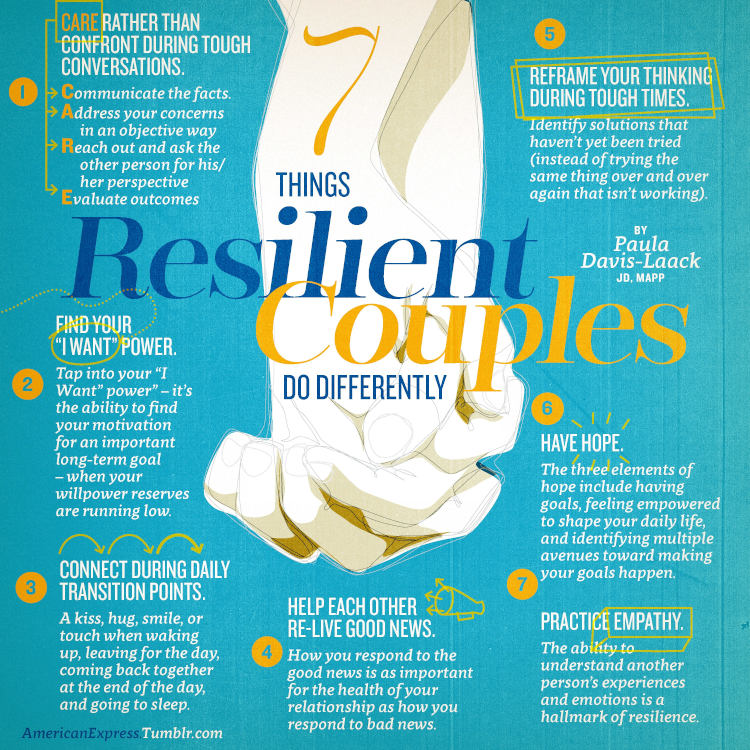
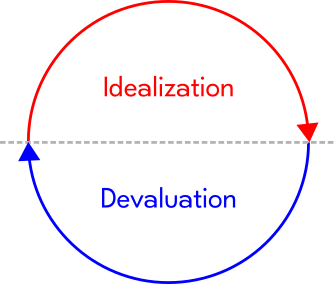
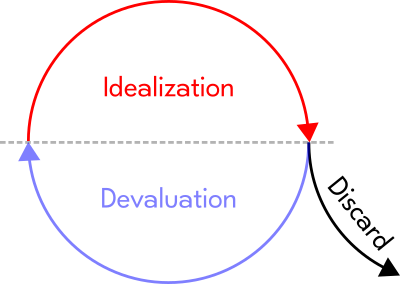

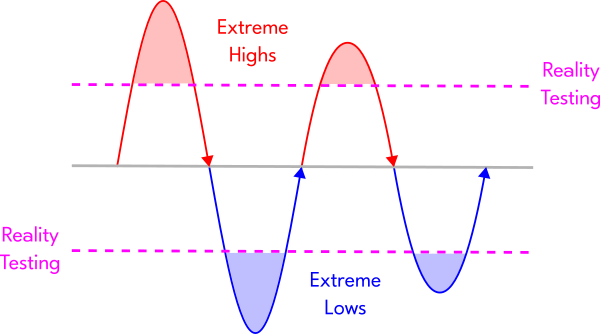
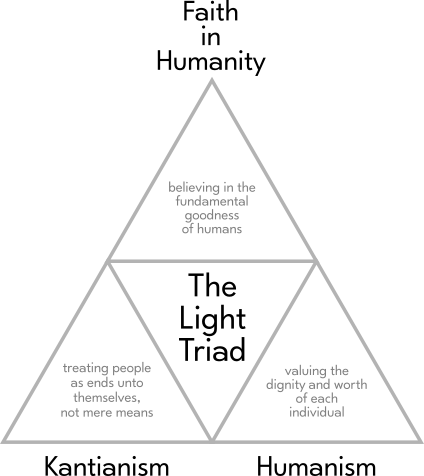
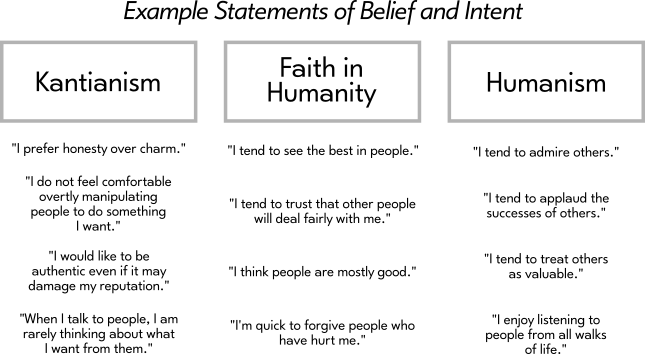
Early damage to the prefrontal cortex of the brain, either through oxygen deprivation at birth or from brain injury as a young child, hinders the social and moral development of the child. Adults who receive trauma to their brain, on the other hand, are usually aware of the proper social and moral conduct, but are not capable of applying such correct behavior.Another contributing factor is a constant "inner critic" formed by a strong sense of "egoism". Biologically, it is associated with a cluster of brain areas known as the "Default Mode Network". The research of Gary Weber shows how its activity can be quieted through a process of "self-enquiry".
Brain injury involves two different sets of events. Primary brain injuries include fractures, bruises, blood clots, lacerations of brain tissue or blood vessels. A secondary cycle of biochemical events is also set in motion by the trauma, and is the primary contributor to long-term damage associated with brain injury.
In the womb, the prefrontal cortex is the slowest to develop. After birth it is the last to form the deep fissures that give the outer layer of the human brain its characteristic cauliflower-like appearance. The brain cells in the prefrontal cortex form more slowly than any other area of the brain. This is also the area that controls most of our major higher functions, and bestows us with "executive functions" such as working memory and multi-tasking.
According to Raymond Dolan of The Institute of Neurology in London, many patients with this type of brain damage to the prefrontal cortex have problems with violence and resembled "psychopathic individuals, who are characterized by high levels of aggression and antisocial behavior performed without guilt or empathy for their victims." Otherwise these people are normal in every way, including mental ability. Their brains are just not capable of acquiring social and moral knowledge even at a normal level.
Since the 1980s, scientists have been able to connect damage to the prefrontal cortex with psychopathic behavior and the inability to make morally and socially acceptable decisions. Unfortunately, this area of the brain is susceptible to injury.
At the November 1999 annual meeting of the Society of Neuroscience, researchers presented findings and statistics compiled from the University of Sweden that we startling. Asa Bergvall presented findings on their study of violent offenders, explaining that the prefrontal cortex area of the brain is precisely the "area of the brain that is impaired in murderers, rapists, and other violent criminals who repeatedly re-offend."
"The violent offenders are like the controls in every task but one, which taps prefrontal function," says Bergvall. "In that, it was as if they were retarded. They had an impaired ability to shift their attention in order to view the world in a different way - a function linked to the lateral prefrontal cortex. Other, higher order executive functions of their prefrontal cortex appeared to be unimpaired."
Psychopathologist and researcher Adrian Raine, from the University of Southern California, documented prefrontal damage in people with Antisocial Personality Disorder as characterized by "irresponsibility and deceitfulness, lack of emotional depth and remorse." He reported, "The antisocial men actually had 11-14% less brain tissue volume in their prefrontal cortexes, compared to normal males - a deficit of about two teaspoons' worth."